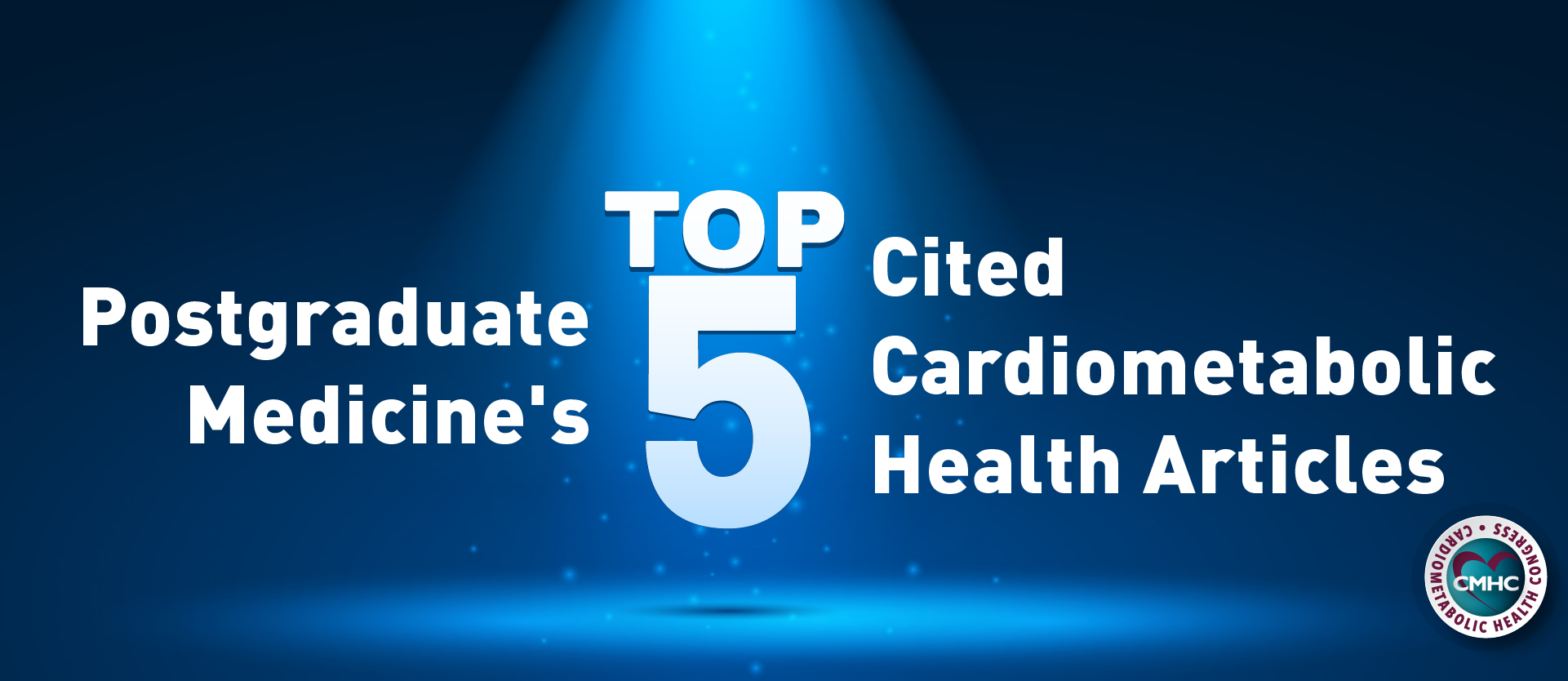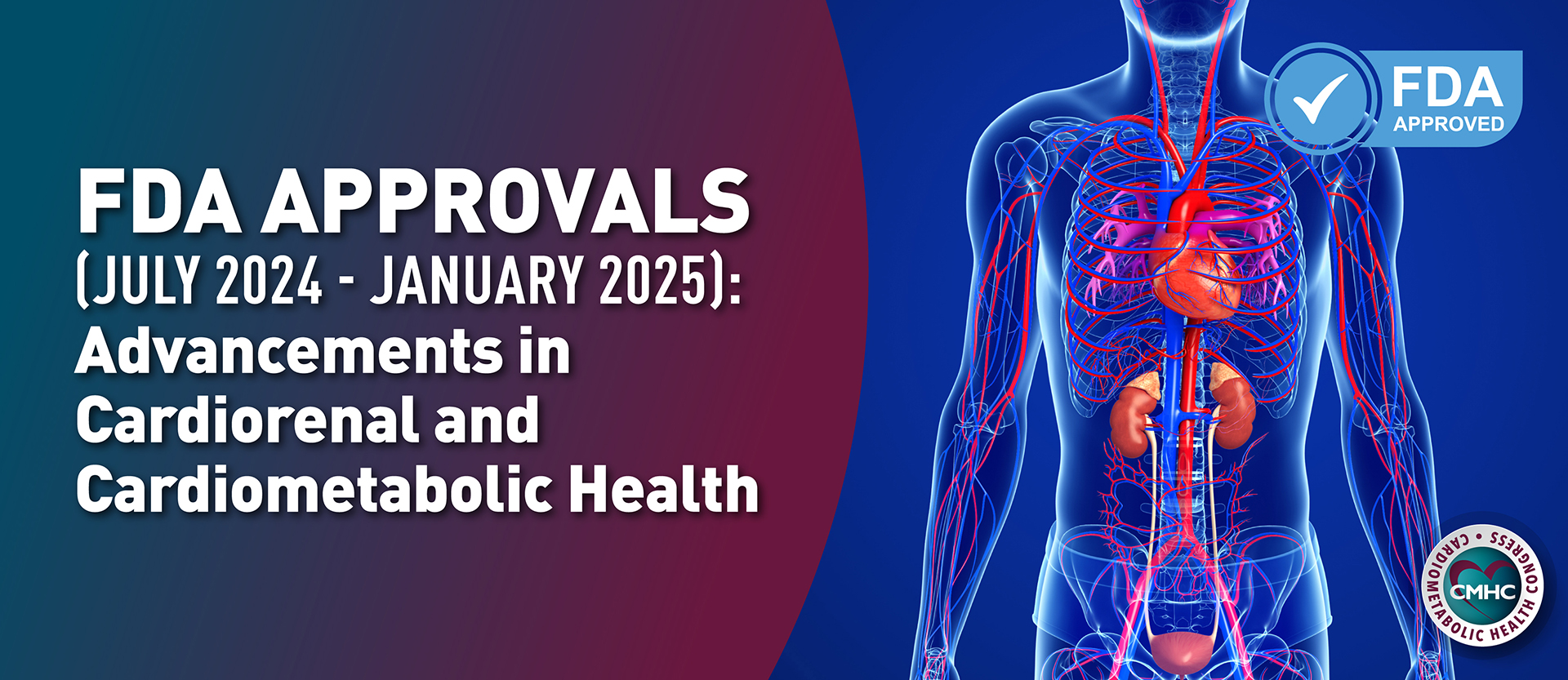By Howard A. Miller, MD
As the Editor-in-Chief of Postgraduate Medicine (2020 Impact Factor: 3.84 and CiteScore: 4.4) I wanted to highlight the journal’s top 5 most cited articles in the cardiometabolic health field from the last 4 years. These articles explore various aspects of cardiometabolic health, including the definition of the interactions of risk factors for cardiovascular events, therapies for metabolic issues that have an effect on cardiovascular health, and newer therapeutics for diseases that directly lead to cardiac disease.
Postgraduate Medicine’s most cited article was by Dr. Wang, et al. Their article explores an objective way to predict a major risk factor in the development of cardiovascular disease, hypertension. Certainly, lipid disorders and obesity have been associated with hypertension. In a large population study, specific lipid measurement tools were used and predicted the development of systolic and diastolic hypertension. Using specific parameters, the development of hypertension could more easily be predicted and help define therapy approaches in this high-risk group.
The second place goes to an article by Drs. Brunton and Wysham. Their article explores the use of GLP-1 agonists in the treatment of type 2 diabetes. This class of agent, released initially in 2005, has provided an entirely different direction for the treatment of diabetics. This class of agent has specific effects on peptides of the incretin system including GLP-1. This effects insulin secretion as well as glucagon secretion in the post prandial period. The article also reviews the “ominous octec” that lead to the development and progression of hyperglycemia. This allows the reader to understand the pathophysiology of diabetes, newer therapies and introduces an oral form of a GLP-1 agonist to help facilitate better patient compliance in therapy of diabetes.
The third most cited article is by Dr. Brunton, et al. that specifically looks at the use of the oral drug semaglutide, an oral GLP-1 in the therapy of diabetes by primary care physicians. The use of this class of agent was already reviewed in the previous article. Now there being an oral form of this class of agent opens up an easier route of administration for patients and will perhaps lead to greater compliance in drug therapy in a very complicated disease to manage, type 2 diabetes. This article helps to define which diabetics would benefit from this agent. It also defines the specific way this agent must be used to facilitate the appropriate effect of the drug. Lastly, with this class of agent there are specific conditions which would contraindicate the use of the drug. This article explores these issues and defines the literature and issues leading to these considerations. Primary care physicians have the greatest burden in the care of these patients and this comprehensive review allows them to explore and understand the use of a novel form of a previous class of therapy.
Treatment of type 2 diabetes often leads from oral agent therapy to injectable therapies, specifically insulin. Beta-cell burnout is at the center of this situation and treating physicians have seen this very often in the care of this class of patient. Our next article by Drs. Wysham and Shubrook reviews Beta-cell failure with regard to these mechanisms, pathophysiology of this phenomena, measurement tools to help to predict this event, and therapeutic methods to try to avoid this “inevitable” direction in the therapeutics of patients with type 2 diabetes.
Lastly, Dr. Mosenzon, et al. explore the use of semaglutide in the treatment of type 2 diabetes in the context of common complications and comorbidities associated with this disease; for example, cardiovascular and renal impairment. The use of a new drug in the face of these severe complications and associated conditions of diabetes is of great concern of treating physicians and might modify or restrict the use of a therapeutic agent. Certainly, type 2 diabetic patients have a disproportionate likelihood of these complications. This article evaluates the use of the drug in face of these conditions and allows treating physicians to make informed decisions about a new therapeutic agent.
All five of these articles help to define new techniques or therapies to help evaluate and treat cardiometabolic issues in a more effective manner. I hope you found the selection of articles both useful and interesting.
Howard
Publish your work in Postgraduate Medicine
Postgraduate Medicine provides an essential platform to display and communicate the latest relevant medical information and breakthroughs in cardiometabolic treatments, aiming to help physicians solve clinical problems and improve patient care. Please see our previous focus issues that provide an important insight into field of cardiometabolic medicine.
Introducing oral semaglutide and the PIONEER program to primary care
Cardiometabolic conditions focus issue
The journal is currently looking for articles on a cardiometabolic theme for a focus issue on ‘Diabetes’ which will be released early in 2022. These articles will benefit from an increased Impact Factor (3.48) and CiteScore (4.4) in 2020 as well as a growing readership.
If you are interested in submitting your work please use the link below or if you have any questions regarding submission please contact the Executive Editor, Mike Gregg.
https://mc04.manuscriptcentral.com/pgm
Editor-in-Chief – Postgraduate Medicine

Howard A. Miller, MD, is a Professor of Medicine at Drexel University College of Medicine. Dr. Miller is a native Philadelphian who has been practicing medicine since graduating from Hahnemann University School of Medicine in 1977. He has remained with the Hahnemann medical group through his career and is dedicated to both clinical practice and teaching. Dr. Miller has been the director of multiple student training programs and was the residency program director at Hahnemann University Hospital. He was the past President of the Delaware Valley IPA and was President of the medical staff at Hahnemann University Hospital. Dr. Miller was also appointed Division Chief for the Department of General Internal Medicine at Drexel University College of Medicine. In addition to being the Editor-in-Chief of Postgraduate Medicine, Dr. Miller is also a guest editor of Clinical Cornerstone supplements. Dr. Miller has been the recipient of numerous “Golden Apple” awards and over 20 teaching awards, both local and national. He has been profiled as one of Philadelphia Magazine’s “Top Docs” 6 times. Dr. Miller has also been named in Town and Country Magazine’s “Best Primary Care Physician List.” Most recently, Dr. Miller was the recipient the “Outstanding Alumni Teacher Award.”


















